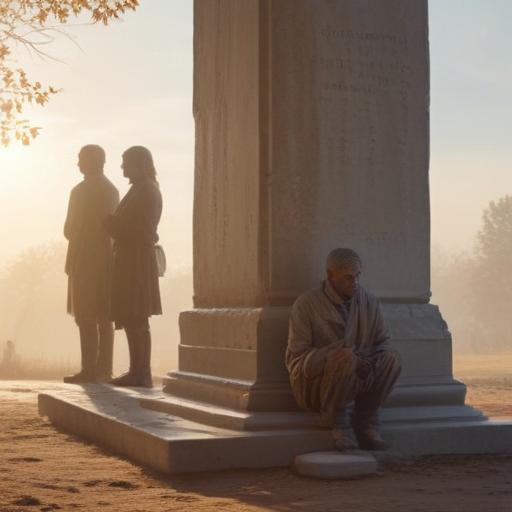A recent event surrounding the burning of a monument has sparked significant dialogue about its historical significance and the emotional weight it carries. The conversation centers on the question of who the monument truly represents and the broader implications of such structures within the community.
Jarita Frazier-King, an eighth-generation descendant of George Fitzgerald and Mary, a woman of Jamaican descent who was wrongfully enslaved, shared her reflection on the emotional complexities connected to monuments that symbolize pain and suffering. With her family’s history deeply intertwined with a plantation in Mississippi, Frazier-King emphasizes the duality of grief and relief felt in response to the fall of such symbols.
For many, the destruction of a monument can serve as both a moment of joy and a cause for mourning. Frazier-King highlights that while these structures often represent the injustices faced by ancestors, they also stand as testaments to resilience and the achievements of those who built them. An example she points to is the Nottoway Plantation, which embodies the creativity and excellence of Black ancestors who were more than mere laborers; they were innovators and visionaries.
Frazier-King sheds light on the economic disparity that persists regarding these historical sites. While they generate millions in tourism revenue, the descendants of the individuals who built them often see little benefit. She advocates for a holistic approach to honoring ancestors that includes equity, access, and ownership. The destruction of monuments should not only provoke conversations about history but also inspire action towards recognizing and empowering those who have been historically marginalized.
The discussion invites communities to view these monuments as sacred spaces rich with history, encouraging healing and the sharing of stories that honor the work and sacrifices of ancestors. Frazier-King, a celebrated entrepreneur and director at the Women’s Business Center at Alcorn State University, passionately conveys her commitment to preserving this legacy and foster recognition of her ancestors’ contributions.
This moment of reflection and discussion reveals a path forward—one where history is acknowledged, and healing can begin, propelling communities toward a future built on understanding and shared heritage.
